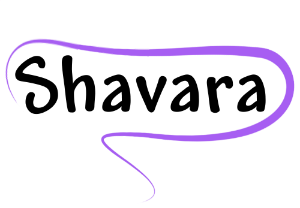It is widely accepted that tobacco use has been proven to be the leading cause of preventable death in the United States.
![]()
 Tobacco use related diseases cause over 392,000 U.S. deaths per year, in addition, 50,000 people die from exposure to secondhand smoke.
Tobacco use related diseases cause over 392,000 U.S. deaths per year, in addition, 50,000 people die from exposure to secondhand smoke.
In response to the evidence, CMS decided in 2005 to consider smoking and tobacco use cessation counseling to be reasonable and necessary for a patient with a disease or an adverse health effect that has been found by the U.S. Surgeon General to be linked to tobacco use, or who is taking a therapeutic agent whose metabolism or dosing is affected by tobacco use as based on FDA approved information.
![]()
 Beginning in January 2006, Medicare’s prescription drug benefit covers smoking and tobacco use cessation agents prescribed by a physician.
Beginning in January 2006, Medicare’s prescription drug benefit covers smoking and tobacco use cessation agents prescribed by a physician.
Although minimal counseling is already covered at each evaluation and management (E&M) visit, Medicare will cover 2 cessation attempts per year. Each attempt may include a maximum of 4 intermediate or intensive sessions, with the total annual benefit covering up to 8 sessions in a 12 month period. (Medicare Advantage plans typically follow same coverage guidelines. Contact individual payers for policy information).

 The definitions of cessation counseling attempt and session are listed below:
The definitions of cessation counseling attempt and session are listed below:
Cessation counseling attempt occurs when a qualified physician or other Medicare-recognized practitioner determines that a beneficiary meets the eligibility requirements above and initiates treatment with a cessation counseling attempt. A cessation counseling attempt includes up to 4 cessation counseling sessions (1 attempt=up to 4 sessions). Two cessation counseling attempts (or up to 8 cessation counseling sessions) are allowed every 12 months. In calculating the 12-month period, it is necessary for at least 11 months to have passed following the month in which the first Medicare-covered cessation counseling attempt/session was performed.
Cessation counseling session means face-to-face patient contact of either the intermediate (greater than 3 minutes and up to 10 minutes) or the intensive (greater than 10 minutes) type performed either by or “incident to” the services of a qualified practitioner for the purpose of counseling the beneficiary to quit smoking or tobacco use. During a 12-month period, the practitioner and the beneficiary would have flexibility to choose between intermediate or intensive cessation strategies for each session.

 The procedure codes that represent these sessions are:
The procedure codes that represent these sessions are:
99406 – Smoking and tobacco use cessation counseling visit; intermediate, greater than 3 minutes up to 10 minutes
99407 – Smoking and tobacco use cessation counseling visit; intensive, greater than 10 minutes
G0436 – Smoking and tobacco use cessation counseling visit for the asymptomatic patient; intermediate, greater than 3 minutes up to 10 minutes
G0437 – Smoking and tobacco use cessation counseling visit for the asymptomatic patient; intensive, greater than 10 minutes

 The reimbursement for these procedures ranges from approximately $14.00 to $29.00 based upon the Medicare locality. Your practice can also receive additional financial incentives by participating in the Physician Quality Reporting System (PQRS). Core Measure PQRS# 226 (NQF 0028): Preventive Care and Screening: Tobacco Use: Screening and Cessation Intervention.
The reimbursement for these procedures ranges from approximately $14.00 to $29.00 based upon the Medicare locality. Your practice can also receive additional financial incentives by participating in the Physician Quality Reporting System (PQRS). Core Measure PQRS# 226 (NQF 0028): Preventive Care and Screening: Tobacco Use: Screening and Cessation Intervention.
Details about this measure are listed below:
Description: Percentage of patients aged 18 years and older who were screened for tobacco use one or more times within 24 months AND who received cessation counseling intervention if identified as a tobacco user
Numerator: Patients who were screened for tobacco use at least once within 24 months AND who received tobacco cessation counseling intervention if identified as a tobacco user
Definitions: Tobacco Use – Includes use of any type of tobacco
Cessation Counseling Intervention – Includes brief counseling (3 minutes or less), and/or pharmacotherapy

![]() Valuable information to assist your patient to quit smoking can be found on the American Lung Association website.
Valuable information to assist your patient to quit smoking can be found on the American Lung Association website.


